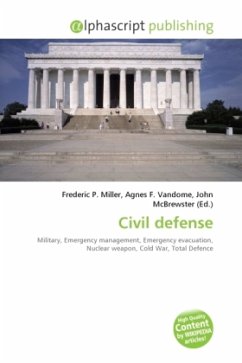
Insanity Defense
Versandkostenfrei!
Versandfertig in 6-10 Tagen
32,99 €
inkl. MwSt.

PAYBACK Punkte
16 °P sammeln!
High Quality Content by WIKIPEDIA articles! In criminal trials, the insanity defenses are possible defenses by excuse, an affirmative defense by which defendants argue that they should not be held criminally liable for breaking the law, as they were legally insane at the time of the commission of alleged crimes. A defendant attempting such a defense will often be required to first undergo a mental examination. The legal definition of "insane" in this context is quite different from psychiatric definitions of "mentally ill". When the insanity defense is successful, the defendant is usually comm...
High Quality Content by WIKIPEDIA articles! In criminal trials, the insanity defenses are possible defenses by excuse, an affirmative defense by which defendants argue that they should not be held criminally liable for breaking the law, as they were legally insane at the time of the commission of alleged crimes. A defendant attempting such a defense will often be required to first undergo a mental examination. The legal definition of "insane" in this context is quite different from psychiatric definitions of "mentally ill". When the insanity defense is successful, the defendant is usually committed to a psychiatric hospital. In the United Kingdom and the United States, use of the defense is rare, and it is more common to rely upon a state of temporary mental impairment. In the United States, a state of temporary mental impairment is not a legal defense, but is rather a mitigating factor referred to as "diminished capacity". Mitigating factors including things not eligible for theinsanity defense, such as intoxication may lead to reduced charges or reduced sentences.












